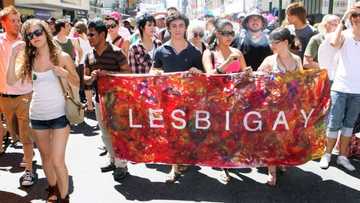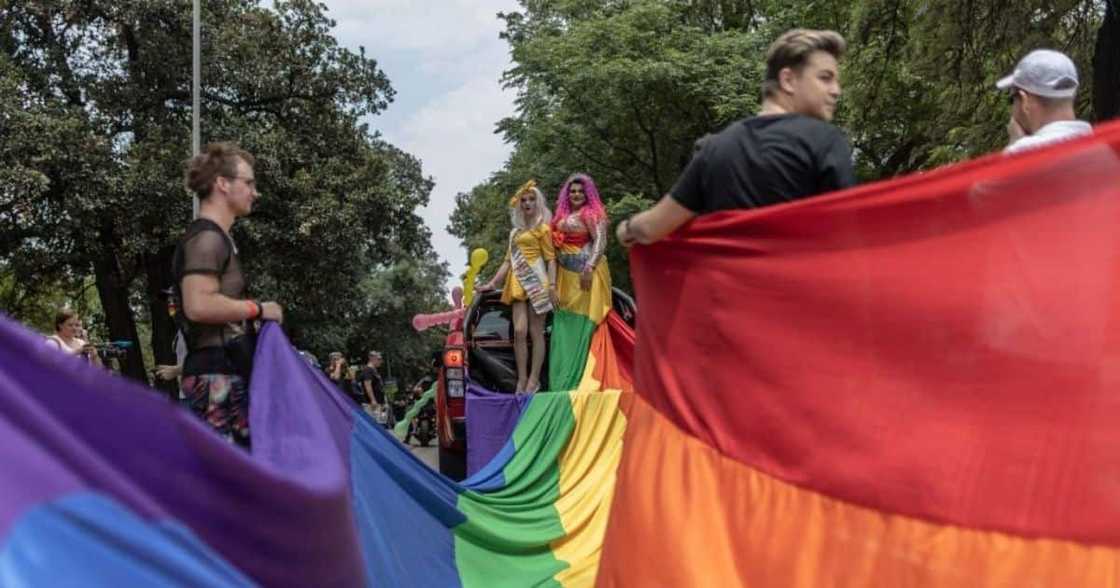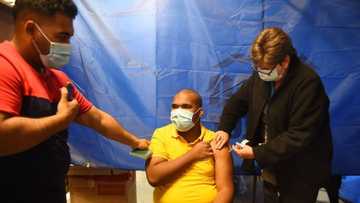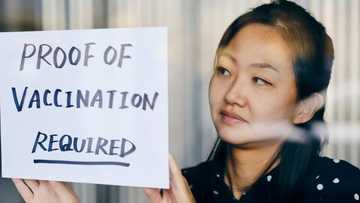Bill Proposed To Protect LGBTQIA+ in SA From Hate Crimes, Government Called To Sign
- South Africa's lesbian, gay, bisexual, transgender, queer, intersex and asexual communitie do not feel safe
- Different activism groups within the community want a bill to be passed into law that will make hate crimes and hate speech against queer people illegal in South Africa
- The proposed bill will provide the South African legal system with a definition of hate crimes, which currently do not have
PAY ATTENTION: Click “See First” under the “Following” tab to see Briefly News on your News Feed!
DURBAN - Lesbian, gay, bisexual, transgender, queer, intersex and asexual (LGBTQIA+) people in South Africa do not feel protected from hate crimes and hate speech.
2021 is the quarter-century anniversary of the South African Constitution which ensures that nobody is discriminated against on the basis of race, gender, religion, association, sexual orientation, or ethnicity.
However, members of the LGBTQIA+ community in South Africa feel that this is not enough legal protection and have proposed a bill that will offer targeted protection so that those who commit hate crimes against queer people will be brought to justice, SABC News reports.

Read also
15 Years since South Africa became the 1st and only African country to legalise same sex marriages

Source: Getty Images
Why the proposed bill is necessary to ensure LGBTQIA+ safety
The proposed law is called the Prevention and Combating of Hate Crimes and Hate Speech Bill. Different activism groups with the South African LGBTQIA+ community have requested for it to be signed into law as soon as possible.
PAY ATTENTION: Never miss breaking news – join Briefly News' Telegram channel!
Briefly News spoke to Sharon Cox, the Health and Support Services Manager for Triangle Project, which is a South African organisation that fights homophobia, transphobia, and intersexphobia. Cox said that one of the benefits of the proposed bill is that it will create a legal definition of hate crimes, as there is currently only a working definition in South Africa.
"This would then put in place mechanisms for authorities to collect and report details about these incidents of hate for the effective monitoring, analysis of trends and appropriate interventions that are needed," Cox said.
Cox added that the enactment of the bill will provide qualitative and quantitative data regarding the frequency of hate crimes and hate speech against queer people in South Africa, as this data is not publicly available. While the law will not automatically change attitudes, said Cox, it will show zero tolerance for this behaviour.
Thirdly, hate will be recognised as an aggravating factor in the sentencing of those who are prosecuted under the bill, due to the legal framework that the proposed law provides courts with. Cox said that the law will help prosecutors to hold perpetrators of hate crimes accountable.
Reactions to the proposed hate crimes bill
@WarrenNebe said:
"South Africa's hate crimes against LGBT+ are some of the worst on the continent. I am safer as a Queer man in many African countries. Just not my own."
@Sakhilemngadi shared:
"I am so angry! @PresidencyZA we need more than 3 sentences in a speech! We need a SIU in every police station that is dedicated to investigating gay hate crimes!"
@shenayobrien believes:
"We need action, accountability, FUNCTIONING systems, implementation of prevention plans and CHANGE. No more empty words and promises from a Government who clearly do not value the Lives of LGBTIQA+ individuals."
@RobynMonei said:
"Hate crimes aren't taken seriously in South Africa. Whyy kill someone for their sexual orientation? Some people are idiots and we aren't going to live our lives in fear. We are gay and proud."
15 Years since South Africa became the 1st and only African country to legalise same-sex marriages
Previously Briefly News reported that In October 2020, President Cyril Ramaphosa signed into law the Civil Union Amendment Bill that blocks marriage officers from declining to conduct marriages that involve same-sex partners. This wasn't the first time South Africa was ahead of the game.
Mzansi's Constitution is the world's first to prevent unfair discrimination based on sexual orientation. This pushes forward equality for the LGBTQIA+ community in South Africa.
Sodomy in Mzansi during the apartheid regime could have resulted in jail time of up to seven years. Men were prohibited from having casual contact that could be considered homosexual behaviour.
Source: Briefly News



